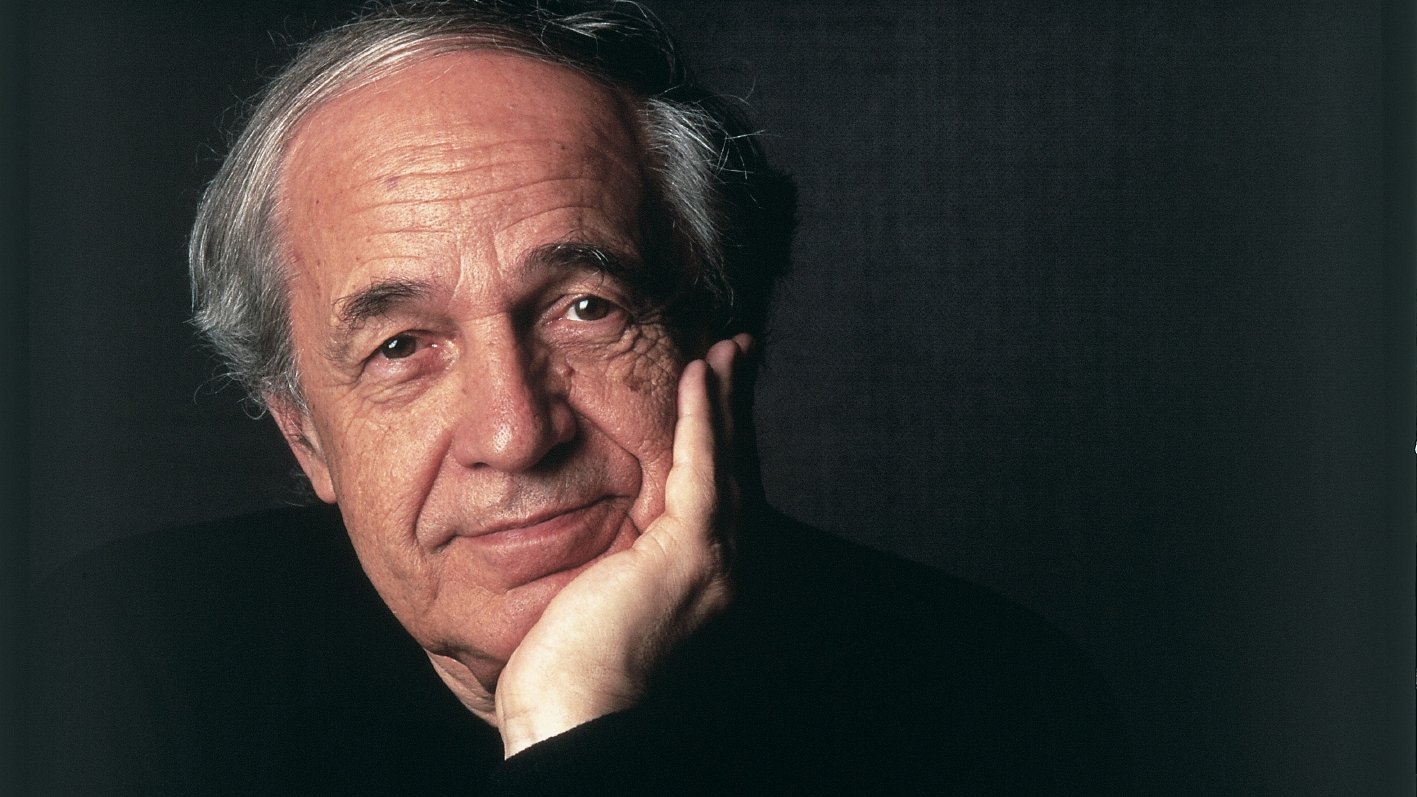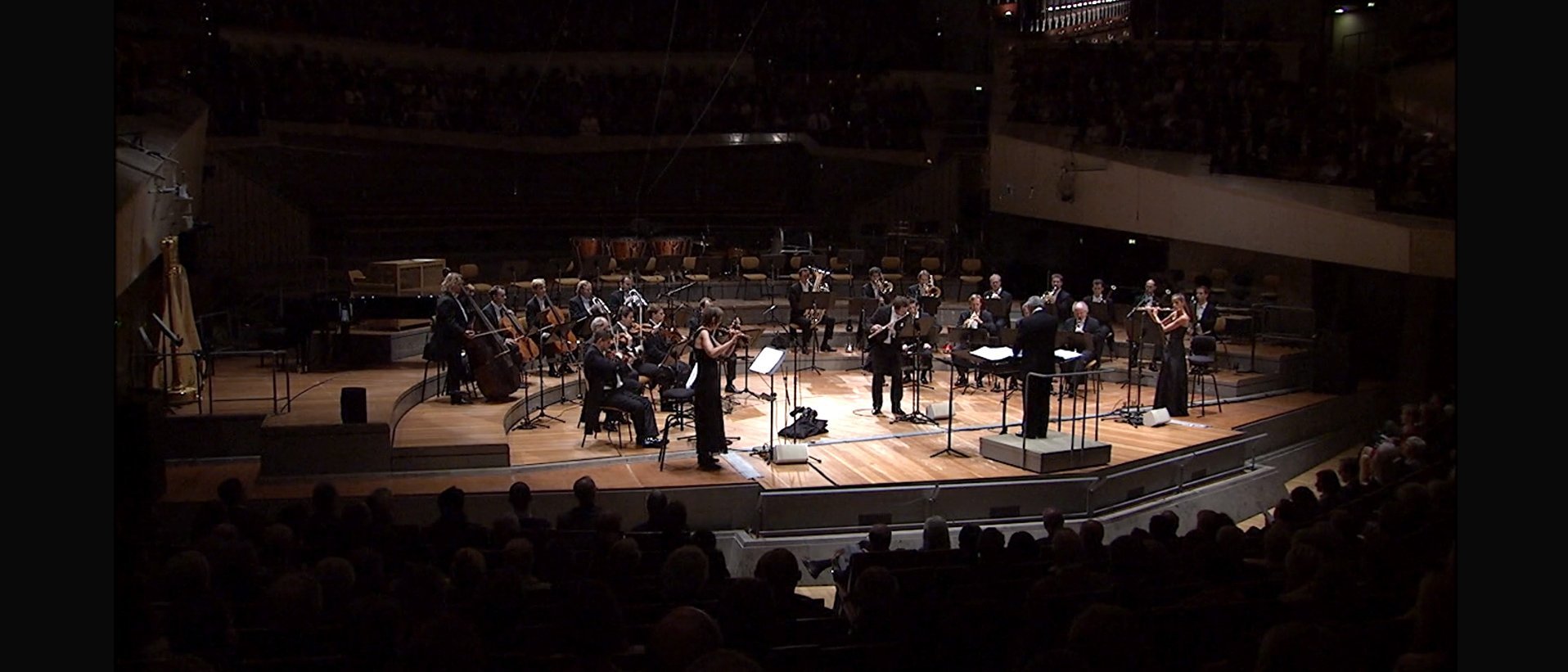
He set out to shatter the norms of the European music business – but he ended up as one of its most influential personalities. Pierre Boulez, born on 26 March 1925 in Montbrison in eastern France, made a formidable impact, both as a composer and as a conductor, not least because of his sharp analytical mind and unconditional commitment to music. He did not view rationality and sensuality as opposing forces; instead, they were two congruent strands which music could entwine. Boulez was an artistic associate of the Berliner Philharmoniker for almost 50 years.
It all began in the 1960/61 season. Wolfgang Stresemann, who was the Berliner Philharmoniker’s artistic director at the time, introduced the Music of the 20th Century series, presenting important contemporary works under the direction of leading composers from the new music scene. Pierre Boulez, a student of Olivier Messiaen and René Leibowitz, was invited. He brought a reputation as one of the most important voices at both the Darmstadt Summer Course and the Donaueschingen Music Festival, the two leading experimental laboratories for contemporary music. Like his music, his public statements were polarising, challenging and thought-provoking.
Pierre Boulez had just turned his back on France as a protest against his homeland’s Algerian politics and cultural policy, settling instead in the tranquil spa town of Baden-Baden, where he lived until his death in 2016. He made his debut with the Berliner Philharmoniker on 14 January 1961 with Debussy’s Iberia and Webern’s Six Pieces for Orchestra, as well as his own piece, Portrait de Mallamé. “I found it difficult,” Boulez recalled. “There wasn’t much of an audience - but those who listened were interested in the music.”
Standard-bearer of New Music
Boulez, already something of a standard-bearer for new music, came to Berlin several times as part of this concert series, until other tasks took over. He became principal guest conductor of the Cleveland Orchestra, and chief conductor of the BBC Symphony Orchestra and the New York Philharmonic. Most importantly of all, he established IRCAM, the Paris-based Institut de Recherche et Coordination Acoustique/Musique, which was one of the world’s leading institutions in the field of electronic music. Boulez stayed away from Berlin for almost 20 years. It was not until 1993 – the concert series Music of the 20th Century had long since ceased to exist – that he resumed his collaboration with the Berliner Philharmoniker. He repeatedly praised the orchestra’s brilliance and virtuosity. On his visits, he conducted Bartók, Ravel, Debussy, Webern and Stravinsky. “Nobody expects me to perform Mozart, Beethoven and Schumann,” he later remembered; “but rather the repertoire of the 20th century. The Berliner Philharmoniker played a lot of Mahler, and I [was] delighted to be able to make music with them that [was] more modern, but inspired by Mahler.”
A highlight was his performance at the Berliner Philharmoniker’s European Concert at the Hieronymus Monastery in Lisbon in 2003, which offered the rare opportunity to experience Boulez as a Mozart conductor – specifically, his Piano Concerto No. 20 with Maria João Pires as the soloist. The Berliner Philharmoniker appreciated Boulez for his precision, his intelligent interpretation and his analytical objectivity, which often shed new light on well-known works. Boulez also held tremendous significance for the orchestra as a composer; his music was regularly performed in concerts, also in his absence. The special connection was celebrated in 2005 at a joint concert to celebrate Boulez’s 80th birthday. Above and beyond his artistry, Pierre Boulez was highly valued by the members of the Berliner Philharmoniker on a personal level, as a man who combined unerring acumen with great personal kindness.
